CALL FOR YOUR CONSULTATION
Virginia Divorce Laws 101
Guiding Families Through Legal Challenges, One Step at a Time.
Confused about Virginia divorce laws? Let Ashwell & Ashwell, PLLC simplify the process for you. Our trusted attorneys will provide the support you need. Call now.








Navigating Divorce in Virginia
For some, the end of a marriage can be extremely painful. For others, it’s the start of a new life after an abusive relationship. Regardless of the reason, divorce is a life-changing decision with repercussions and consequences.
It doesn’t help that Virginia divorce law can be complicated. Although proving fault is not always required, the divorce process is often demanding. If you need help navigating this ordeal, you are better off hiring a divorce lawyer.
A divorce and family law attorney can answer your questions and guide you through the process. Experienced and compassionate divorce attorneys at Ashwell & Ashwell, PLLC, can handle the entire process for you and protect your rights. We will be with you from day one until a divorce decree is issued.
What You Need to Know About Divorce Laws in Virginia
Divorce in Virginia can either be contested or uncontested. A contested divorce is one where one of the parties disagrees with dissolving the marriage. It can also be a divorce where the parties cannot agree on dividing their assets or child custody. An uncontested divorce is when both parties agree to dissolve the marriage.
Divorce can also be a fault-based divorce or no-fault divorce. A fault-based divorce is one where one of the parties is to blame for the divorce. A divorce filed on fault-based grounds requires more evidence. However, in a no-fault divorce, the couple only needs to prove separation for a specific period.
Under § 20-91 of the Code of Virginia, the grounds for divorce from a bond of matrimony are the following:
-
Adultery, sodomy, or buggery
-
Felony conviction, with at least a year jail sentence
-
Cruelty that caused bodily harm
-
Willful desertion or abandonment
Spouses in Virginia may also apply for a partial divorce. Called divorce from bed and board, this does not dissolve the marriage. However, the couple chooses not to live together and divide their property. A partial divorce necessarily means that neither party can marry again. The grounds for partial divorce are cruelty, willful desertion, abandonment, and reasonable fear of bodily harm.
What Is the Virginia Divorce Process?
The divorce proceeding starts with the filing of a complaint. There may be available forms online which you can use. However, a Virginia divorce attorney can draft your complaint and ensure it is complete and accurate.
The complaint usually includes:
-
Proof of residency
-
Date and circumstances of marriage
-
Names and birth dates of minor children
-
Ground or grounds for divorce
-
Separation or having no physical relations
The plaintiff can decide whether to file the divorce in the city or county where he lives or where the other spouse lives.
Residency is the first requirement in obtaining a divorce in Virginia. You or your spouse must be a resident of Virginia for at least six months before filing. If both of you are no longer living in Virginia, then you cannot file for divorce here. If you cannot satisfy this requirement, your petition will be dismissed.
In case of an uncontested divorce
If the couple has minor children, they must be separated for at least one year prior to filing. This includes the adopted children of the couple. If the couple does not have minor children, they must be separated for at least six months. In addition, they must execute a property settlement agreement or separation agreement.
In an uncontested divorce, you only need to submit the following to the court:
-
A waiver of service of process form (signed by your spouse);
-
Your affidavit
-
An affidavit of your witness, and
-
The signed separation agreement
The court will review based on the forms and documents you submit. There is no need for court appearances.
In case of a contested divorce
The judge steps in to help the couple in making decisions. These decisions usually involve child support and custody.
Once a party files the forms, the other party will be served with copies of the papers. The party that files is called the complainant. The party who receives the papers is called the defendant.
The “service” of the divorce papers will properly notify the defendant of the request. The defendant will also be ordered to submit their response to the claims.
An uncontested divorce usually takes two to three months. Meanwhile, a contested divorce can take up to 1.5 years. If the decision of the judge is not appealed, the final decree becomes final 30 days after the judge signs it.
Consequences of Divorce: Spousal Support, Child Support and Child Custody
Spousal support and child support may be awarded while the divorce is pending. The court will decide based on the current situation and issues. However, the dependent spouse’s needs and financial resources are huge factors.
As for child custody, parents can have joint legal custody unless the child’s best interests dictate otherwise. An abusive or violent spouse may not be given the same rights. In this case, sole legal custody may be granted to the innocent spouse.
The best interests of the child are the most important considerations in determining child support and custody.
Marital Property vs. Separate Property
When it comes to marital property, any property acquired during the marriage, the parties may agree on how to divide their assets. If they cannot agree, the court may intervene to ensure the equitable distribution of marital assets based on the couple’s finances.
Grounds alleged may also affect how the property and financial assets are divided. For example, raising adultery as your divorce ground may affect your spouse’s share.
All property acquired and owned before marriage is considered separate and is not subject to property division.
What Are the Possible Defenses to the Grounds for Divorce in Virginia?
Here are the usual defenses against the grounds for divorce:
-
Connivance: The spouse consented to the other spouse’s adultery.
-
Justified abandonment: The defendant was abused and had no choice but to leave.
-
Condonation: The complainant voluntarily resumed the relationship with the defendant after learning of their adultery.
-
In pari delicto: Both spouses are at fault or guilty of any of the grounds for divorce.
-
Res judicata: The complainant previously filed for divorce on the same grounds as the current complaint and failed.
Let a Divorce Attorney in Warrenton, VA, Guide You Through This Complex Process.
If you represent yourself, you’ll need to comply with the same rules and standards as an attorney. You will need to know Virginia divorce laws and processes. You’d need to present your evidence and witnesses like a legal counsel would.
But why go through that?
At Ashwell & Ashwell, PLLC, we can take care of your divorce filing for you. Our law firm can negotiate with your soon-to-be-former spouse to reach a mutual agreement. This will make the process less painful for everyone involved and faster to conclude. Contact us today to schedule a consultation.






